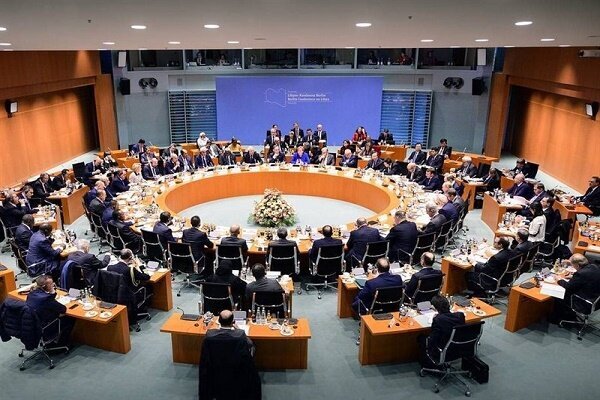Berlin conference on Libya, a breakthrough or the rivals’ saber-rattling

TEHRAN - The Berlin conference was held on Sunday to find a solution to put an end to the crisis in Libya. The meeting, which was attended by representatives of 12 countries, ended without achieving any practical breakthrough out of the crisis.
The conference had gathered the governments of Algeria, China, Egypt, France, Germany, Italy, Russia, Turkey, the Republic of Congo, the United Arab Emirates, the United Kingdom and the United States of America and High Representatives of the United Nations, the African Union, the European Union, and the Arab League State in Berlin.
This report is trying to clarify some aspects of the failure of conference.
The conference’s motto-like final statement, in which ceasefire, peace, foreign interference, oil, gas, etc. has been stipulated, shows ultimately that no new solution has thus far been found by the participants which mean it ended without any result.
Based on the final statement, the participants in the conference agreed not to meddle in any armed clash as well as the Libyan internal affairs, but indeed the war-hit country is still witnessing alien forces’ presence which are after guaranteeing their own interests.
The statement says that each and every of the trans-regional power, involved in the Libyan crisis, including Turkey, Russia and the axis of Western countries, are determined to only materialize their own objectives in Libya.
It is worth to say that objectives of the above-mentioned foreign meddlers are in contrast with each other, and none of the meddlers try to appease the other one.
Turkey that had concentrated its foreign policy on the eastern Mediterranean region as well as Libya in recent months, has recently inked a sea border agreement with the Libyan Government of National Accord. The move has caused Ankara’s rivals to resume approval processing of an eastern Mediterranean border agreement in order not to miss their interests in the region.
The mentioned agreement, in turn, caused the other beneficiary nations in the eastern Mediterranean region, including Egypt and Greece to react. The agreement was also criticized by Russia and the U.S.
On the other hand, Egypt, Israel and recently Saudi Arabia have agreed on investment on the Republic of Cyprus’ gas resources in the Mediterranean Sea, which in turn caused Turkey to embark on resumption of drilling operation in Turkish-populated Cyprus (in the Northern part of the Republic of Cyprus).
Accordingly, even prior to the Berlin conference, it was obvious that the meeting will not bring about a sensible outcome in line with de-escalation of tensions in Libya; instead, the conference was assumed to be a bedrock for the rivals’ intention to take more power-share to materialize their own interests.
Even the Libyans have called the conference a part of a plot against their country.
